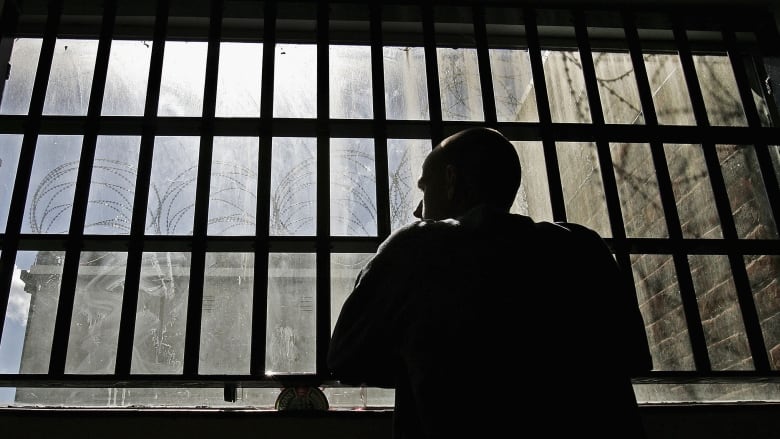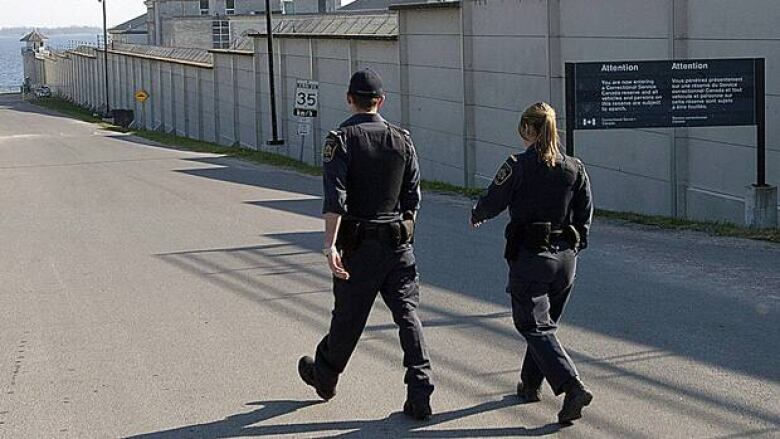Intelligence agency needs to keep a closer watch on extremism in prisons, report says
Authors of internal review call out lack of coverage of people convicted of terrorism

Canada's spies could be doing a better job of investigating extremismin theprison system, says an internal report.
The document, obtained through an access to information request, emerged from a behind-the-scenes review of how the Canadian Security Intelligence Service (CSIS) and the RCMPshare information.
"One of the concerns we have is the lack of coverage over persons convicted of terrorism offences once they are in jail," says the report. It waswrittenby two national security lawyers taskedby the RCMP and CSISwith making recommendations to deal with information-sharingbottlenecksin the national security intelligence sphere.
"It is accepted that there is a radicalisation problem within our correctional institutions, not only Islamic extremism but also extreme right-wing white nationalism," the report says. "The vast majority of inmates will be released to the community. The challenge is to monitor these released offenders to evaluate the threat posed, if any."
The authors write that while it's impossible for CSIS to investigate every potential threat, "it can and should investigate threats arising from those in custody."
"Where a person has been convicted of a terrorism offence, it is likely that they will continue to adhere to an extremist ideology and influence others who will pose threats to national security upon release," said the report.
"Without visibility over the correctional environment, it is conceivable that we will not know of persons who pose a threat upon release."
Extremism low in the prison hierarchy: study
The 253-page "top secret"report suggests changes to permit provincial and federal correctional authorities to do abetter job of sharing information with both CSIS and the RCMP.
"This will allow these agencies to develop appropriate threat management measures to manage those offenders who pose threats and have been recently released from jail," reads the document.
But William Shultz, a PhD candidate at the University of Alberta, said his research shows thatprison culture and its hierarchiesmight actually be keeping extremism in check.
Schulz said a bedrock level of patriotism in prison populations makes associating with known terrorists quite risky.
"There's almost a pride in Canadian national identity and terrorism is perceived as a bad action against that," he said.
"There's often a wide assumption that people in prison are ... sort of blank slatesthat you can just impress whatever extremist beliefs you'd like onto, [and] that's not at all the case. There are very distinctive sub-cultural factors at play."

Between 2016 and 2017, Shultz and his co-authors gained unprecedented access to several Canadian prisons as part of their study. They interviewed almost 600 inmates and about 130 corrections officersabout prison life, asking themwhether they had observed radicalized messaging or recruitment in the prisons.
"Assuming that just because somebody is now sentenced and they're going to come out of prison as a terrorist, or they're going to be building and breeding new little terrorists in prison, is a real problem," Schulz said.
"I have real concerns because you end up demonizing incarcerated people who are one of the, if not the most, vulnerable populations in Canada."
But he did agree with the report's conclusion that the RCMP, CSIS and corrrections services should communicate more.
"I think anybody who's worked within these agencies is going to be shaking their head right now in disgust,"he said. "It's not an intentional thing but often there's [this]internalized kind of warfarebetween different agencies.
"And prisons are particularly bad for this because they are kind of the end of the road."
The office ofPublic Safety Minister Marco Mendicinowho oversees the Correctional Service of Canada, CSIS and the RCMP did not respond to CBC's request for comment.
Earlier this week,CSIS director David Vigneault told a special joint committee of MPsand Senators that an increasing share ofhis agency's resources is going to investigating ideologically motivated violent extremism in Canada.
"I would say that we are now close to 50 per cent of our counterterrorism capacity devoted to that phenomenon, contrasted to the phenomenon of religiously motivated [extremism], and it is, indeed, one of the concerns we have. We see [it] both in Canada and across the world," he said Tuesday night.
"We are constantly looking at the movement of ideologically motivated violent extremists so we have a fairly good understanding of the dynamics at play."
A spokesperson for CSIShas said it is working to implement the report's recommendations "as appropriate" while acknowledging that more could be done.













_(720p).jpg)


 OFFICIAL HD MUSIC VIDEO.jpg)
.jpg)



























































































